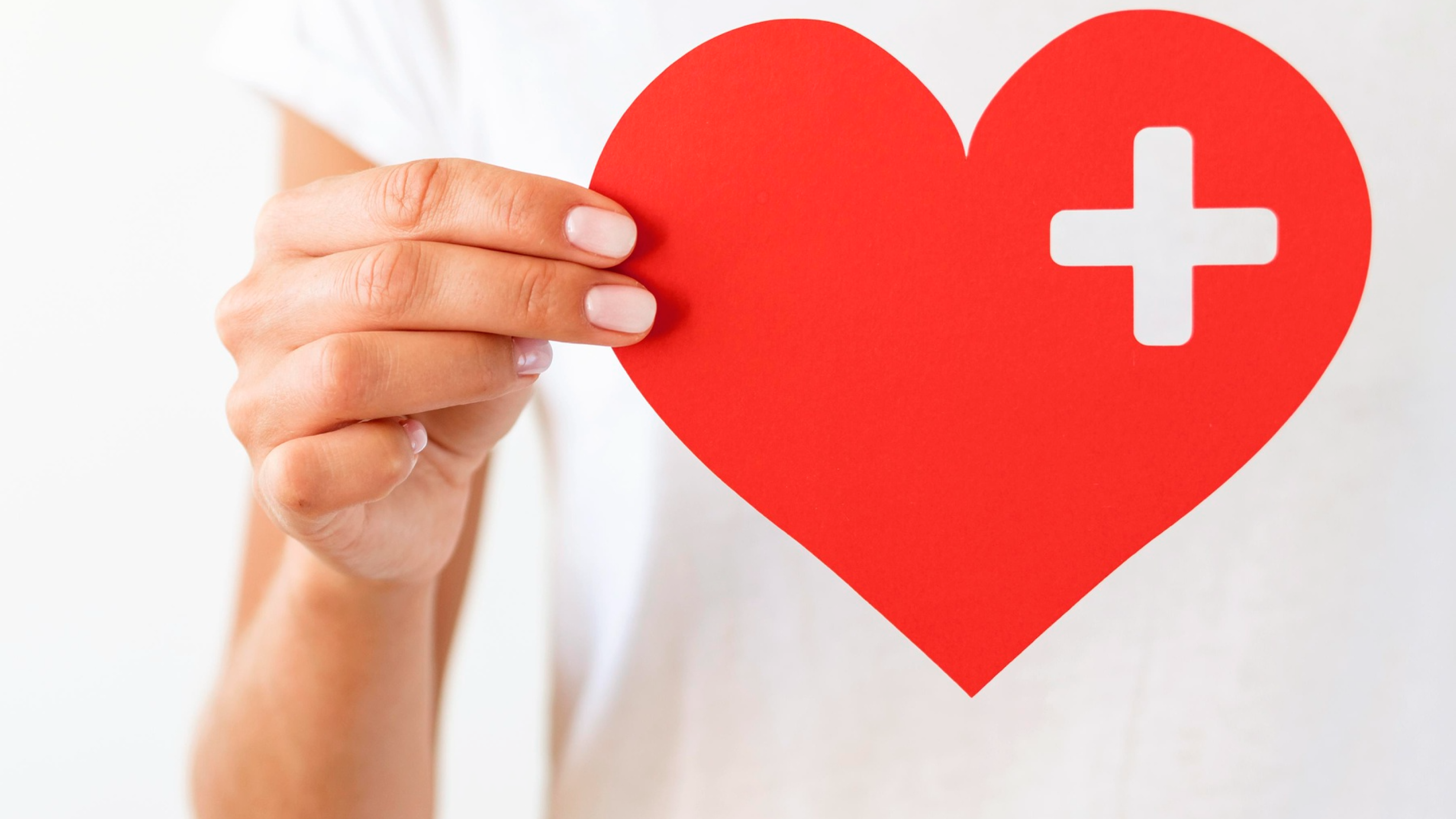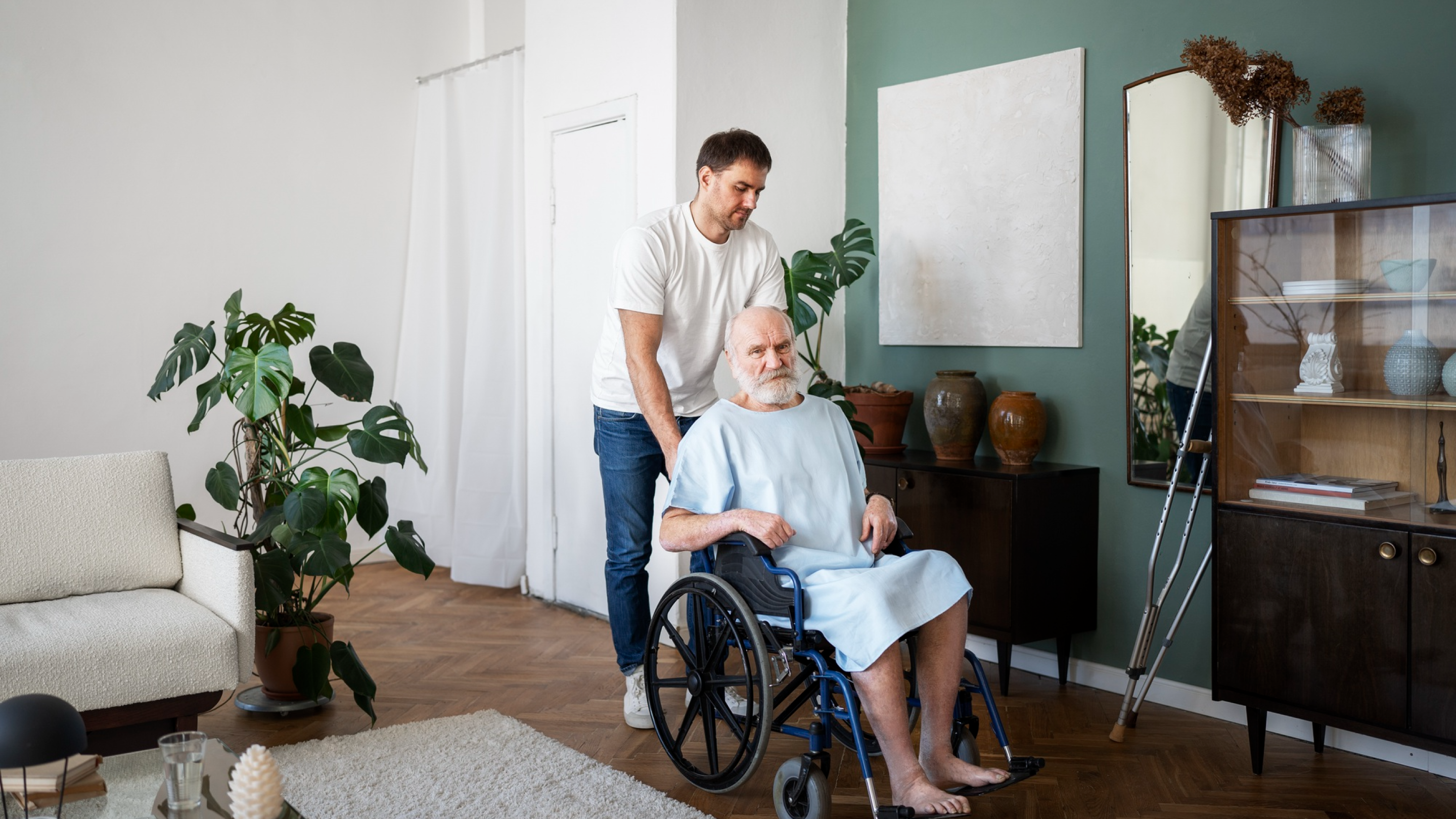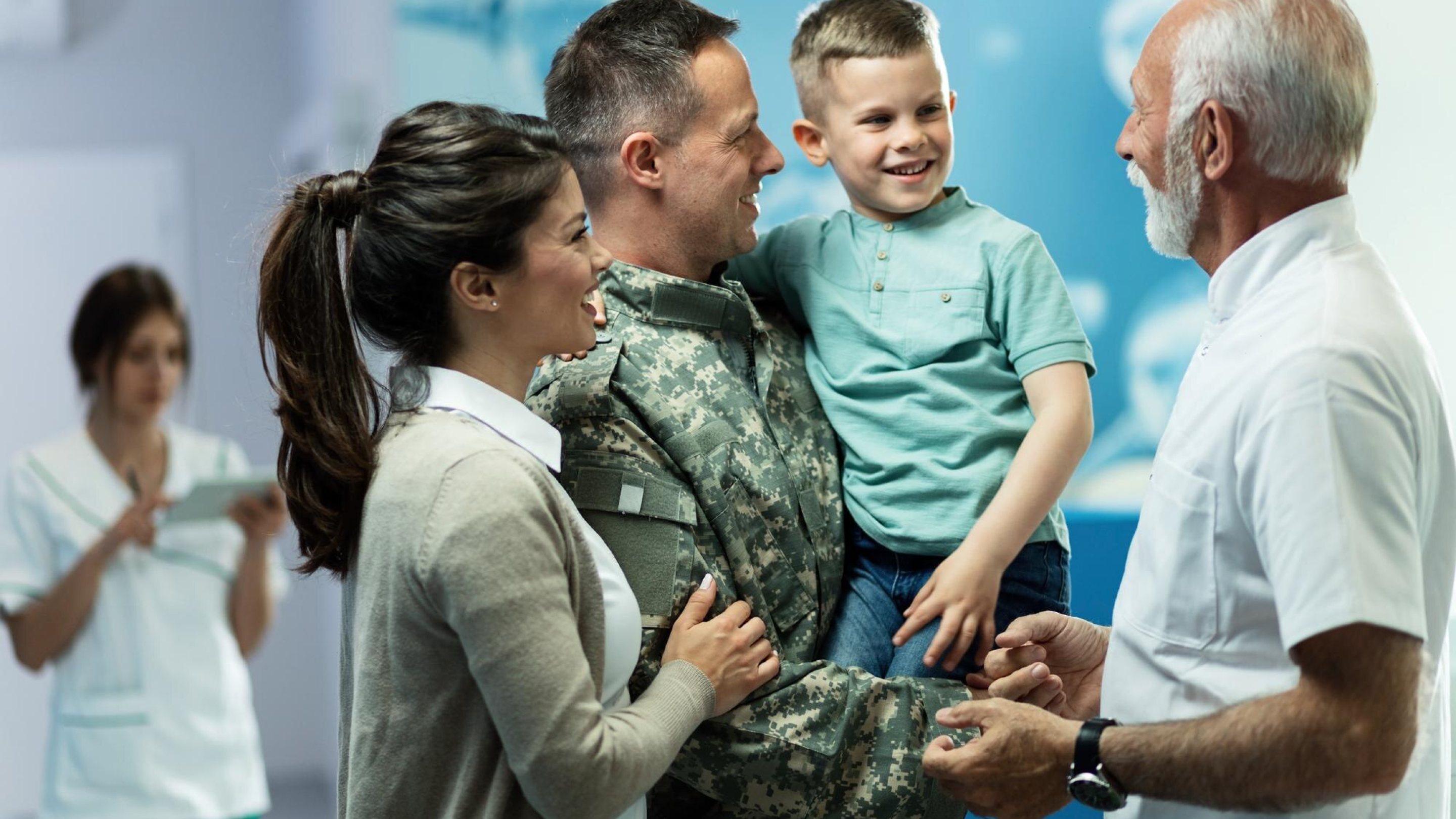The Social and Human Services Section of the Virtual Resiliency Center guides you through important resources that can offer you help and hope on your path to resilience. You are not alone. Explore this section to find support and ideas to find the services you need.
Some of these services might not be needed right away, but many victims and survivors have found them useful at some point after a mass violence incident
"Social and human services" include programs that can strengthen your personal plan for resilience. They are designed for young and old people, and every age in between. These programs can be tailored to meet the unique needs of different ethnic, racial, religious, geographic or socio-economic groups. They can improve your personal capacity to build resilience, and also the capacity of families and children. Many social and human services provide support and access to funding that can help you through what can be a difficult healing process. And some are specifically relevant to mass violence victims who are physically injured, are surviving family members of homicide, or are Veterans who have served our Nation with distinction.
This page has five major sections:
-
Family and Children’s Services and Assistance
-
Health Services and Social Services
-
Housing Assistance
-
Social Security & Veterans Benefits and Services
-
Consumer Protection
Most of the services highlighted on this page are sponsored by government agencies – Federal, state and local. We also feature some resources available from trusted nonprofit, community-based organizations that operate in many communities across America.
You may not need any of these services right now, but it’s a good idea to know about them in case you, or your loved ones, need them anytime in the future.
The National Mass Violence Center is here to help victims, survivors, and communities whose lives are irrevocably altered by mass casualty crimes. Please visit our website for additional resources and tips that can help you build resilience.

Whether you are a survivor of a mass violence crime, or your loved one was murdered, or you witnessed the horrific event, the impact on you, your family and often on children can be overwhelming. You may have unanticipated costs that result from your victimization, or personal needs related to something as basic as having food and housing for your family. You may need support with child care, or access to free health insurance for your kids.
Here in “Family and Children’s Services and Assistance,” you’ll find information about valuable Federal, state and local resources to help you manage unexpected challenges related to your family and kids.

Mass violence crimes can have a profoundly, negative impact on victims’ mental health, but there are also physical and financial burdens. The Managing Grief and Trauma section has information and resources specific to mental and behavioral health, but in the sections below you’ll find lots of information about funding support for health services, including Medicare, Medicaid, and options in some communities for low-cost health care. You’ll also find information about a wide range of other services that you may find helpful, including support housing, food, and employment assistance, among other topics.
Resources available from two national nonprofit organizations – the Salvation Army and the United Way – are also described here, and available in all states and many communities.
We also know that the devastating impact of mass violence victimization sometimes results in victims who have difficulty in continuing to work, or in finding a new job. There’s a section here that describes a wide range of employment services and potential unemployment benefits that you may find helpful.

Often, the financial impact of mass violence crimes can make it difficult to make house payments, or to pay your rent on time. Sometimes, mass violence survivors who are physically-injured may need support to adapt their homes to accommodate a new physical disability.
In the Housing Assistance drop-down menu below, you’ll find information about helpful resources if you experience personal challenges related to house or rental payments.

Social Security benefits offer an important and time-honored “safety net” that can support victims and survivors when they endure unexpected expenses following a mass violence victimization. The Social Security and Social Services drop-down menus below provide links to options and opportunities that may be available to you, including:
-
Social Security benefits for mass violence victims who experience a disability
-
Supplemental Security Income benefits (also called “SSI”) for adults and kids with disabilities, and limited income
-
Important benefits that may be available to you or your family, for widows, widowers and dependents of eligible workers who are killed
And if you or a member of your family is a Veteran – those who serve, deserve compassion, understanding, and direct services and support in the aftermath of mass violence. In the Veterans Benefits and Services section at the bottom of the page, you’ll find a wide range of Veterans’ benefits and services related to disability compensation, free or low-cost medical care, counseling, and burials or memorials.

You may be wondering, “Why would I need protection as a ‘consumer’?”
It’s sad to say but, sometimes, when a mass violence victim – willingly or not – is in the “public eye,” there are some bad people out there who look for opportunities to scam people who are having a tough time, or commit other fraudulent, criminal acts.
The good news is that mass violence victims can report fraudulent activities (including identity theft) to the Federal Trade Commission, and state and local consumer protection offices. These agencies not only accept reports; they can also provide educational materials and help you advocate for your rights as a consumer.
If you or your loved ones are experiencing difficulties with debts that are piling up, or need help with credit repair, help may be available.
This portal provides “one stop links” to a wide range of federal services, including but not limited to:
-
Benefits, grants and loans
-
Disability services
-
Disasters and emergencies
-
Health
-
Housing
-
Jobs and unemployment
-
Veterans
-
Money and taxes
Link to USA.gov
This portal provides “one stop links” to a wide range of federal benefits and services, including but not limited to:
-
Disaster relief
-
Healthcare and medical assistance
-
Financial assistance
-
Loans
-
Family and children’s services
-
Housing
-
Social Security
-
Immigrant and refugee assistance
Link to Benefits.gov
Each state receives funds from the federal government for a state-run child care subsidy program (which is also called “vouchers” and “fee assistance”). These programs help low-income families pay for child care so they can work or attend school. Eligibility requirements are different in each state.
The Children's Health Insurance Program (CHIP) is a partnership between the federal and state governments that provides low-cost health coverage to children in families that earn too much money to qualify for Medicaid. In some states, CHIP covers pregnant women. Each state offers CHIP coverage and works closely with its state Medicaid program. CHIP benefits are different in each state. But all states provide comprehensive coverage, like routine check-ups, immunizations, doctor visits, and prescriptions. Check with your state for information about covered services. Each state program has its own rules about who qualifies for CHIP. You can apply right now, any time of year, and find out if you qualify. If you apply for Medicaid coverage to your state agency, you’ll also find out if your children qualify for CHIP. You must check with the CHIP office in the state you live in to confirm if your family is eligible to get benefits. These programs may be called different names in your state. To find information about the Medicaid and CHIP programs in your state, visit InsureKidsNow.gov or call 1-877-KIDS-NOW (1-877-543-7669). When you call, you’ll be connected to someone in your state who can help you learn whether your children may qualify and help you enroll them.
Head Start is a program of the United States Department of Health and Human Services that provides comprehensive early childhood education, health, nutrition, and parent involvement services to low-income children and families. It promotes school readiness of children under age five through education, health, social and other services.
The Temporary Assistance for Needy Families (TANF) program is designed to help financially at-risk families achieve self-sufficiency. The TANF program provides grant funds to support families with financial assistance and related services, such as childcare assistance, job preparation, and work assistance.
Which activities could you do this week? Of the activities you’ve listed, select the ones you could do this week and circle those.
You can’t do it all at once. It’s okay to save some of these activities for the future. The most important thing is that you chose activities that will be possible for you to do in the immediate future. Consider: (1) Your schedule this week—what do you have time for? (2) Do you have a plan in place or the materials needed to make this activity happen?
The Special Supplemental Nutrition Program for Women, Infants, and Children (WIC) provides federal grants to states for supplemental foods, health care referrals, and nutrition education for low-income pregnant, breastfeeding, and non-breastfeeding postpartum women, and to infants and children up to age five who are found to be at nutritional risk.
Feeding America is a nationwide network of 200 food banks and 60,000 food pantries and meal programs that provides food and services to people each year. It is the nation's largest domestic hunger-relief organization.
Medicare is the federal health insurance program for people who are 65 or older; certain younger people with disabilities; and people with End-Stage Renal Disease. The different parts of Medicare help cover specific services:
-
Medicare Part A: hospital insurance
-
Medicare Part B: medical insurance
-
Medicare Part D: prescription drug coverage
Link to Medicare
Medicaid is a federal and state program that helps with medical costs for some people with limited income and resources, including low-income families, elderly individuals and people with disabilities. Medicaid also offers benefits not normally covered by Medicare, including nursing home care and personal care services.
For people without health care benefits who don’t qualify for Medicaid and the Children’s Health Insurance Program, low-cost health care is available at community health centers. Any fees-for-service are on a sliding scale based upon income. Community health centers can provide prenatal care; baby shots; general primary care; and referrals to specialized care, including mental health and substance abuse.
The U.S. Department of Housing and Urban Development (HUD) offers a wide range of housing resources (many of which are described below). HUD provides a Resource Locator that provides an overview tutorial of its resources, including links to:
-
Affordable housing opportunities
-
Locations of HUD offices nationwide
-
Local public housing authorities and agencies
-
Homeless resources
-
Affordable housing for elderly and special needs individuals
(It may take a second for the tutorial pop-up window to load – be patient.)
HUD provides helpful links to state-level social service agencies that support housing programs.
Housing Choice Vouchers (may load slowly)
This is the federal government’s major program that assists very low-income families, the elderly, and people with disabilities “to afford decent, safe, and sanitary housing in the private market.” Housing assistance is provided to individuals or families, and those eligible can find their own housing. People are free to choose any housing that meets the requirements of the program and are not limited to units located in subsidized housing projects.
USA.gov provides information about renting and rental assistance programs. This includes resources about fair housing, tenants’ rights, and laws and protections in each state.
When financial challenges of MVI victims/survivors lead to potential foreclosures, HUD offers resources to help avoid foreclosures, recognize foreclosure scams, recover after a foreclosure, and refinance existing mortgages.
The Social Security Disability Insurance (SSDI) Program pays benefits to individuals and certain family members who experience a disability, who have worked long enough – and recently enough - and paid Social Security taxes on earnings.
The Supplemental Security Income (SSI) Program pays benefits to adults and children with disabilities who have limited income and resources.
Social Security Disability Insurance (SSDI) and Supplemental Security Income (SSI) Programs
Survivors benefits are available to widows, widowers, and dependents of eligible workers after a loved one dies.
These two programs allow donors to make tax-free gifts to minor children. UGMA involves only gifts consisting of cash or financial securities. UTMA allows any kind of property, real or personal, tangible or intangible, to be gifted to a child OR transferred to a custodian for the benefit of a child. The establishment of tax-free trusts for minors affected by MVIs secures and protects funds made available to them in the aftermath of a MVI.
The U.S. Department of Health and Human Services offers an overview of its social services “that improve the well-being of individuals, families and communities,” including services relevant to MVI victims and communities:
-
Self-sufficiency
-
Temporary Assistance to Needy Families (TANF)
-
Supplemental Nutrition Assistance Program (SNAP)
-
Programs for Persons with Disabilities
-
Programs for Seniors
The United Way “improves lives by mobilizing the caring power of communities around the world to advance the common good.” Local United Way chapters offer resources for disaster recovery, health and financial stability. Chapters exist within local communities in all 50 states, the District of Columbia, Puerto Rico, and U.S. Virgin Islands.
The United Way is only one of many organizations, too numerous to list, that may provide assistance following mass violence. Many national and local organizations, often faith-based, provide incredible support in the aftermath of disaster and violence.
Provision of emergency shelter and other non-shelter support services for survivors and their children, such as victim/survivor advocacy, crisis counseling, safety planning, support groups, information and referrals, legal aid, and housing assistance (emergency, short-term and transitional) to address intimate partner violence and dating violence.
For more information about other types of victim services and rights, be sure to check out the Victim Services page within the VRC.
There are many federal and state programs that offer programs and services that can help if someone loses a job, including:
The Veterans Administration has several programs providing financial, medical and other assistance to veterans, and you can find out more about them by clicking on these links: